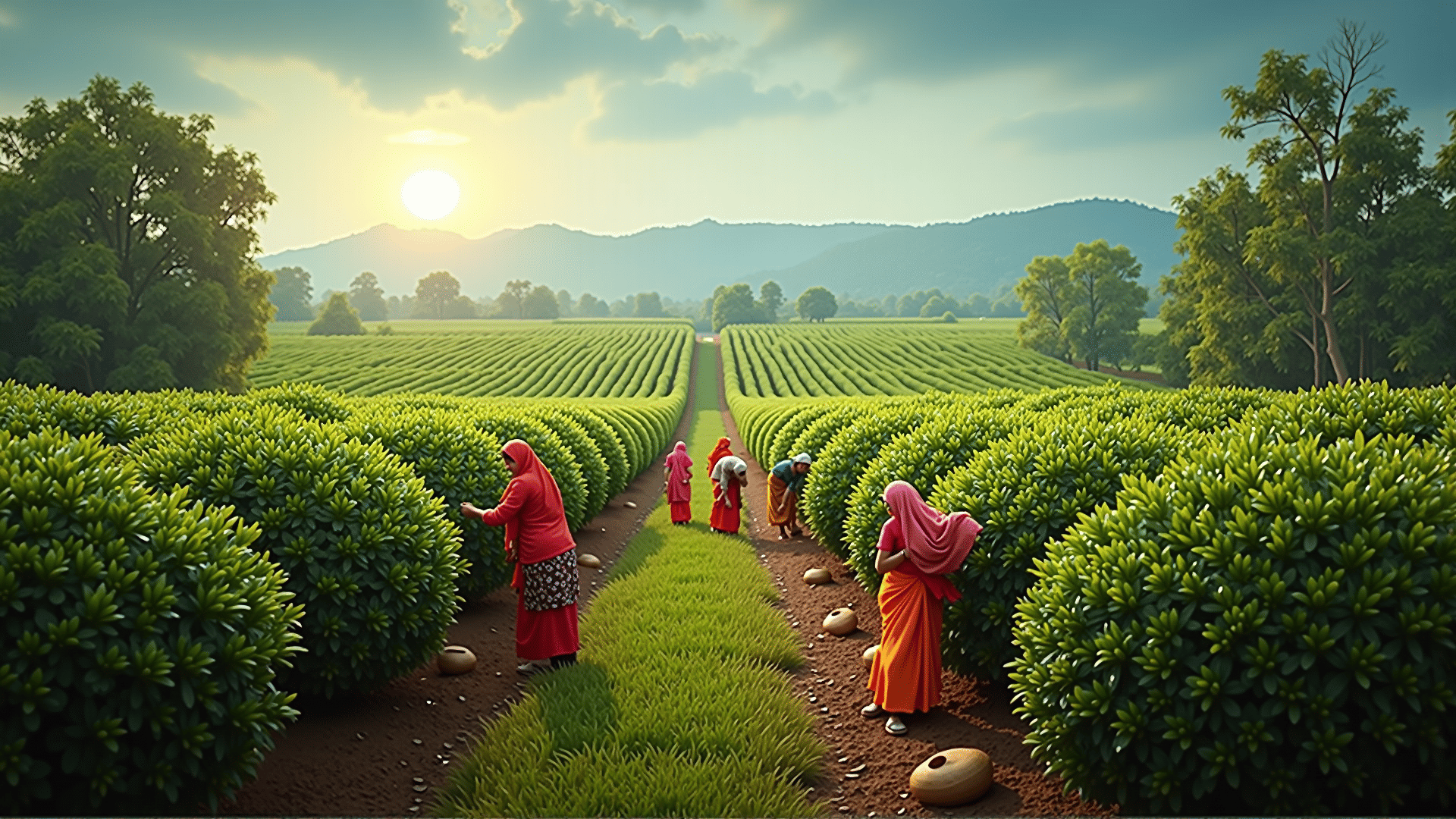The story of coffee in India is as rich and robust as the brew itself. This beloved beverage, synonymous today with relaxation and cultural connections, boasts a history as fascinating as the diverse nation it calls home. The aromatic seeds' arrival in India transformed the social landscapes and contributed to the global coffee narrative in significant ways.
The journey of coffee in India begins in the 17th century with the tale of Baba Budan, a revered figure in Indian folklore. It is said that during a pilgrimage to the Middle East, Baba Budan discovered coffee in the Yemeni port of Mocha. Enthralled by its taste and stimulating effects, he ingeniously smuggled seven coffee beans—a number chosen for its spiritual significance—back to India, which were then planted on the hills of Chikkamagaluru, Karnataka. This small act of defiance against the Arab monopoly on coffee production set the stage for a burgeoning coffee culture in India.
Over time, these humble beginnings blossomed into sprawling plantations, primarily focused in the southern states of Karnataka, Kerala, and Tamil Nadu. The climate, marked by moderate temperatures and plentiful rainfall in these regions, proved ideal for coffee cultivation. By the mid-19th century, under British colonial influence, coffee plantation techniques were refined and expanded, further embedding coffee into the economic and cultural fabric of the region.
Karnataka, in particular, emerged as a major hub, where plantations benefitted from lush surroundings and fertile soil. This set the foundation for India’s reputation in global coffee markets, producing variants such as Arabica and Robusta, which today, are savored worldwide for their distinct flavor profiles. Besides its economic importance, coffee cultivation offered employment opportunities to countless local communities, leading to a mosaic of social interactions and traditions centered around its production.
As India stepped into modernity, so did its coffee culture, evolving beyond the traditional filter coffee that was a staple in South Indian households. The late 20th century witnessed a shift with the emergence of metropolitan coffeehouses that catered to the urban palate. These modern iterations of coffee hubs became epicenters for creativity, conversation, and socialization, echoing the Parisian cafés of yore and serving as meeting grounds for intellectuals, artists, and entrepreneurs.
Today, India ranks among the top coffee producers globally, contributing not just to the economy but to the very essence of its contemporary culture. Indian coffee continues to adapt—embracing trends like artisanal blends, organic farming, and specialty coffee, which appeal to the global milieu. Coffee festivals and competitions further celebrate this transformative beverage, encouraging both local and international appreciation.
From an intriguing legend of seven beans to becoming a cultural emblem, coffee in India mirrors the nation's journey of innovation, resilience, and community spirit. It remains a testament to how a simple seed, through centuries, has crafted connections and conversations – transcending borders and brewing bonds that ripple through generations.
